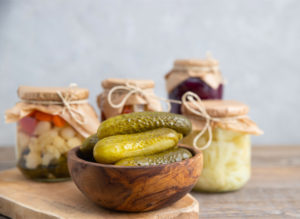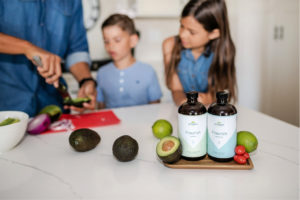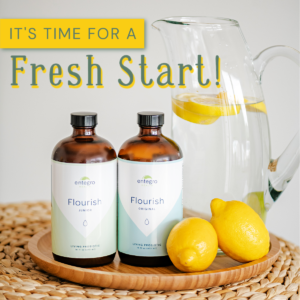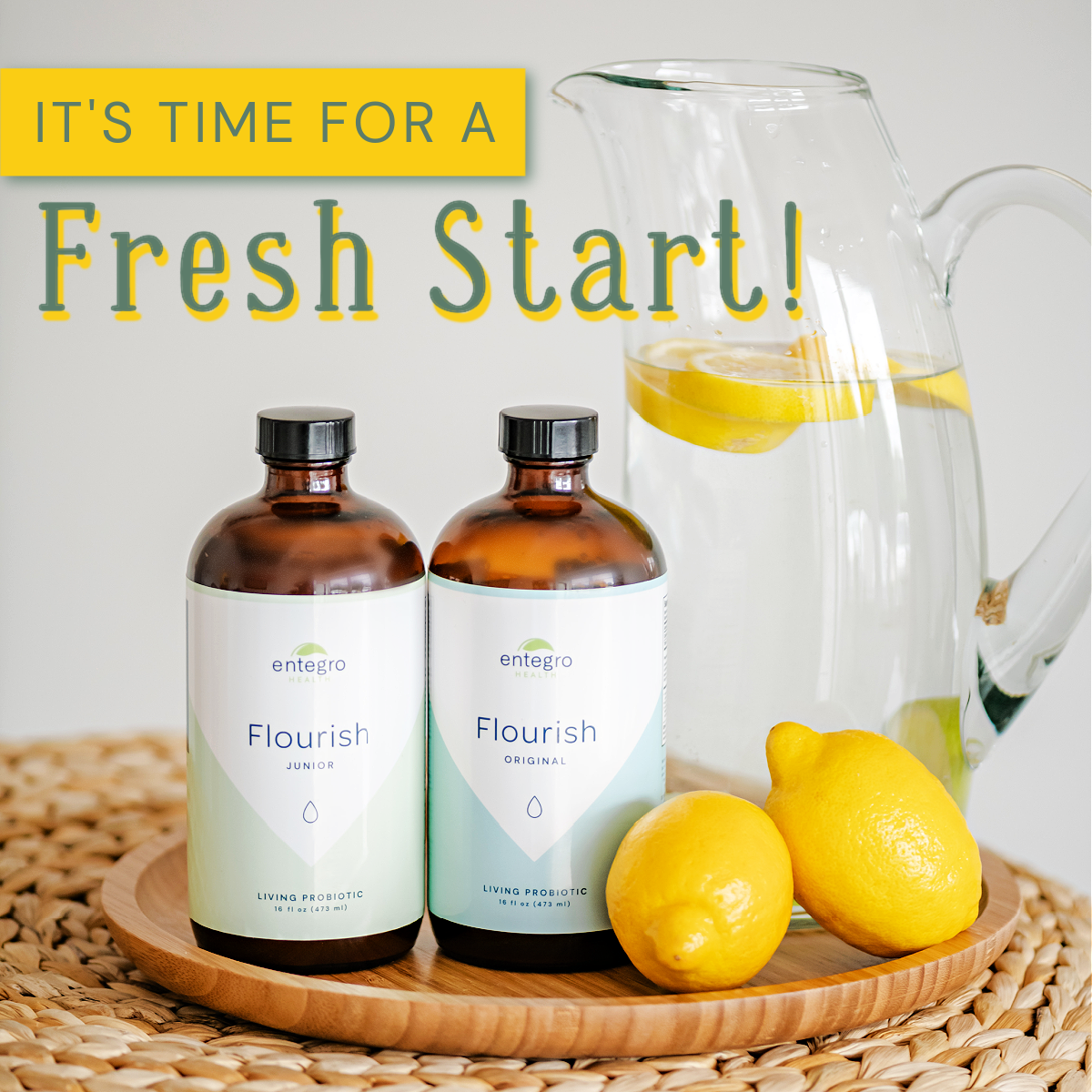Get the Most out of Your Gut Health!
Nothing worth having comes easy and everything about your health is complex. Is that the saying? When we’re talking about overall health and gut health, we’re referring to complex systems that are intertwined. Because there are so many systems involved, there are many ways to approach your efforts to get the most out of your gut health.
Food as Fuel
One of the simplest, but for many people, the most difficult way, to take care of their gut and overall health is through diet. You already know that there are foods that will make you feel good and give you energy, and some that make you feel the opposite.
Fermented and high fiber foods top the list for gut-friendly foods. Fermented foods contain potentially beneficial bacteria, and some contain other organisms, like yeast. These microbes act as probiotics, supporting gut health.
 You may have heard of some popular fermented foods such as kombucha, kefir, yogurt, miso, tempeh, apple cider vinegar, pickles, and sauerkraut. Maybe you’ve even taken a liking to ferment your own foods. If you like the convenience of store-bought foods, you should know that not all pickled foods are fermented. It’s best to check labels that mention live bacteria, fermented, or probiotics.
You may have heard of some popular fermented foods such as kombucha, kefir, yogurt, miso, tempeh, apple cider vinegar, pickles, and sauerkraut. Maybe you’ve even taken a liking to ferment your own foods. If you like the convenience of store-bought foods, you should know that not all pickled foods are fermented. It’s best to check labels that mention live bacteria, fermented, or probiotics.
Due to dietary restrictions, taste, and other factors, some people may choose not to eat these probiotic-rich foods. If that’s the case, it’s best to strive to eat foods from lots of different sources, high in fiber, and as natural as possible. Avoid a diet consistently high in sugar, artificial sweeteners, and food additives… basically, the Standard American Diet.
Pre vs Pro
Did you know there are foods you can consume that feed the friendly little bacteria in your gut? What’s good for them is good for you! We’re talking about prebiotics. Prebiotics sound like probiotics, so what’s the difference?
The simplest way to explain the difference is that prebiotics are food for probiotics, which are beneficial bacteria. Prebiotics are types of dietary fiber that feed the friendly bacteria in your gut. These substances come from types of insoluble fiber that humans can’t digest.
You’re going to hear about soluble fiber as well. What’s with all the similar names? There are so many terms to keep track of, but it’s also so much fun to learn how our bodies function! Both types of fiber are part of dietary fiber. Soluble fiber dissolves in water and helps with digestion. The beneficial bacteria in your gut eat the insoluble fiber.
The kinds of foods and ingredients that contain many of these helpful fibers, you may or may not have heard of. We’re talking about chicory root, dandelion greens, jicama root, and seaweed. Do you eat any of those? Chances are, they may be hiding in some of your favorite foods.
On the other hand, you may be more familiar with foods like garlic, onions, asparagus, bananas, apples, oats, cocoa, and flaxseeds to name a few. These foods are most beneficial when consumed raw and whole.
Naturally Fermented Supplement
You’ll get the most out of taking your daily dose of Flourish if you’re eating a diet high in prebiotic-rich foods. Those foods will feed the good bacteria in Flourish and those helpful bacteria will crowd out the bad bacteria and foods that your body doesn’t want to use.
A diet high in sugar and fat influences the gut bacteria negatively, allowing harmful species to overgrow. When you regularly feed the wrong bacteria, they’re able to grow faster and colonize more easily, without as many helpful bacteria to prevent them from doing so.
Getting the most out of your gut health doesn’t stop at diet. Another positive impact on your gut health is getting sufficient exercise, sleep, and hydration.
Because of the way fiber and other food components break down in your digestive system, you need to drink water, in order to keep the food moving through your intestines, otherwise, you can count on constipation. A lack of water intake may also inhibit your stomach from producing digestive acid. This can raise your stomach pH and cause acid reflux.
Movement
You’ll begin to see how taking care of your gut affects your overall health. A short-term benefit to exercising is that it increases blood flow towards the muscles and digestive tract, which can help move food through the GI tract. If you become less active, your intestinal flow tends to slow down.
Exercise moves blood away from the GI in order to supply the muscle with the oxygen needed to make energy for movement. Changes in nervous system activity, hormones, and end products from energy production change the speed of GI movement.
Not to mention, the endorphins you receive from exercise can lighten your mood. You may also be able to sleep better at night.
Sleep
We also know that the connection between sleep and appetite is important because sleep deprivation can put appetite out of balance and increase food cravings. Lack of sleep decreases the leptin hormone, which is responsible for that satisfied feeling.
Sleep deprivation also impacts the parts of our brain in charge of impulse control. That’s why many people who suffer from poor sleep claim that they cannot control themselves when it comes to overeating. All of that has consequences for the wellbeing of our gut and its ecosystem.
Scientists still don’t fully understand how this relationship works, but they are working on it. Researchers assume that the microbiome can affect sleep by hindering the sleep-wake cycle, circadian rhythm, and hormones that regulate wakefulness and sleep.
Nervous System
Read our blog post to help you learn more about how the nervous system and GI Tract are intertwined and tips get the most out of your gut health through stress management.
We’ve talked about what you can implement into your lifestyle to improve your gut function, but what about things to avoid?
Avoid toxins
Avoiding toxins is huge. Antibiotic use is quite common and can have lifelong effects on the microbiome. However, sometimes it’s necessary! Household cleaners, pollution, chlorinated water, glyphosate, and other chemicals can alter the state of your GI system. Be careful what you use and consume and give yourself some grace.
Gut Health in Real-Time
Sure, these things look good on paper but are much more difficult when applied to the fast pace of life and external factors that cannot be controlled. The microbiome is complex, and every individual’s microbiome and environment are unique.
 Thankfully, we have an option that can help alleviate these challenges and help you get the most out of the steps you are taking for improved gut health. Enter our living probiotic, Flourish. The powerful serving of just 1 Tablespoon of 11 different strains from 5 genera provides a minimum of 8 billion CFUs of bacteria. These fermented friends are acid-producing, creating an acidic environment and a favorable transport to the lower GI tract. Flourish is different from other probiotics that are freeze-dried because they remain and thrive in their natural liquid environment. The liquid allows the probiotics to continue to live and multiply after bottling. The short-chain fatty acids, bioactive peptides, amino acids, enzymes, and minerals all work together.
Thankfully, we have an option that can help alleviate these challenges and help you get the most out of the steps you are taking for improved gut health. Enter our living probiotic, Flourish. The powerful serving of just 1 Tablespoon of 11 different strains from 5 genera provides a minimum of 8 billion CFUs of bacteria. These fermented friends are acid-producing, creating an acidic environment and a favorable transport to the lower GI tract. Flourish is different from other probiotics that are freeze-dried because they remain and thrive in their natural liquid environment. The liquid allows the probiotics to continue to live and multiply after bottling. The short-chain fatty acids, bioactive peptides, amino acids, enzymes, and minerals all work together.
Don’t you just love knowing that making choices in one area of your health can affect your overall health? Just like our friendly bacteria thrive with all the right components, you can too!
Written by Kelly Kamerman, Entegro Health

 New customers! Get 11% OFF your first Flourish order with Code FRESHSTART11
New customers! Get 11% OFF your first Flourish order with Code FRESHSTART11